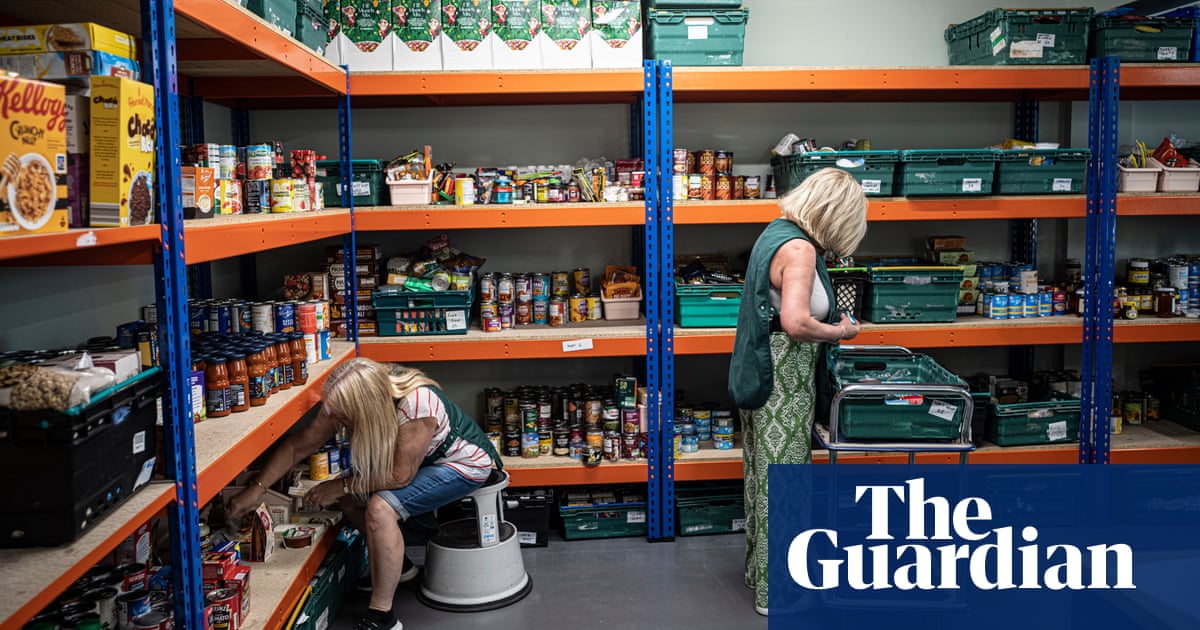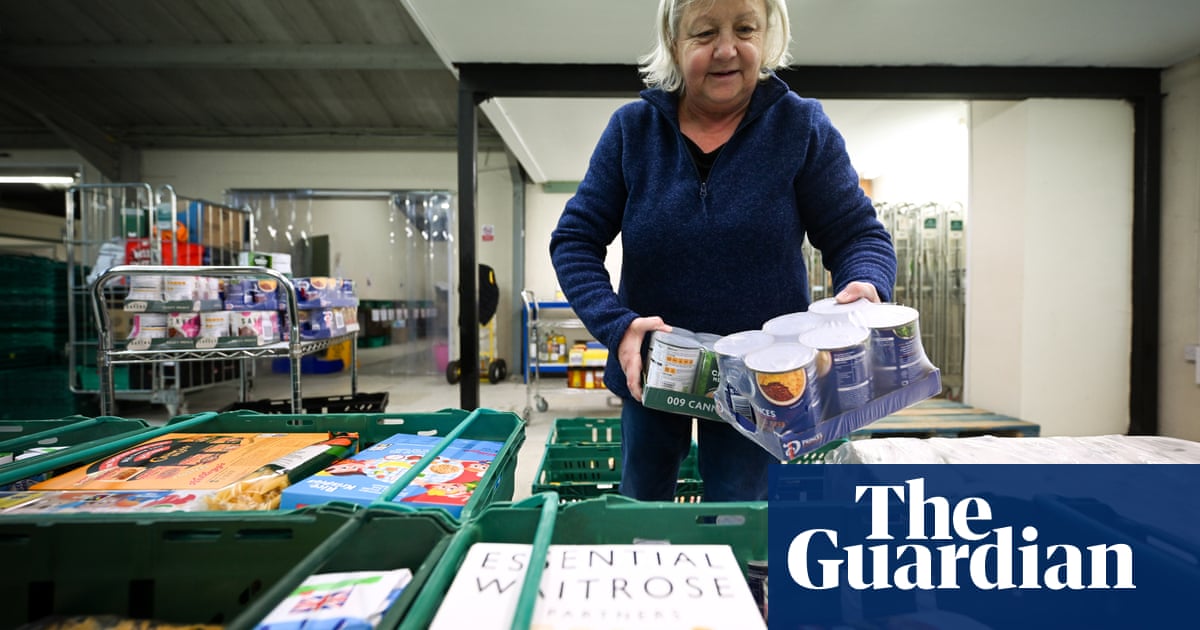
Britain’s food bank charities are buying in counselling, GP and mental health support services to help staff and volunteers cope with stress and exhaustion triggered by the explosion in demand for emergency food.
The wellbeing services are a response to a rise in burnout and stress among frontline food bank workers as they deal with expanding workloads and the emotional burden of supporting increasing numbers of destitute and emotionally traumatised clients.
More than 2,000 Trussell Trust food bank staff and volunteers can now access a package of health and wellbeing support, including help with compassion fatigue, mental health first aid, face-to-face appointments with GPs and counsellors, and access to a helpline provided by the Samaritans.
A number of independent food banks have also bought in staff wellbeing services, with a charity based in the north-east of England about to start paying a private healthcare company to provide a 24/7 helpline and app-based mental health support for its “overwhelmed” staff.
Emma Revie, the chief executive of the Trussell Trust, said the £30,000 investment was a response to the “unrelenting” mental and physical effects on its staff who were under huge pressure to provide emergency food aid and support to increasing numbers of people hit by rising poverty, benefit cuts and the cost of living crisis.
“We felt at the start of this year it was getting worse and worse for staff and volunteers. We don’t want to professionalise this, but we have a duty of care and we had to take action to protect our people. At the end of the day there is no food bank without our volunteers,” she said.
Sabine Goodwin, coordinator for the Independent Food Aid Network (Ifan), said: “As the UK poverty crisis worsens, food bank staff and volunteers are under perennial stress both to source adequate supplies and support people in increasingly complex situations. Overstretched food bank teams are being expected to do the impossible.”
Managers say the emotional burden on volunteers can be especially punishing. They typically arrive keen to make a difference but can be demoralised by the heartbreaking plight of clients, the relentless pace of work and the realisation that clients can be locked into food bank reliance by the inadequate state benefits system.
“Most of our volunteers signed up to give out food parcels and be a friendly face spreading some love,” said Su Parrish, operations director at the Easter Team food bank in Crawley. “They didn’t anticipate the level of stress that our clients now exhibit because of the situations they find themselves in.”
A voluntary movement that started in earnest in the UK just over a decade ago, and which is still relies predominantly community groups and churches, is having to adjust to an increasingly central and semiformalised social emergency role as austerity cuts to welfare benefits and public services push the human consequences of poverty straight to their door.
Initially, food banks typically supported unemployed single adults and refugees, but in recent years the client group has expanded to include families and children, households in low-paid and zero-hours work and pensioners. The rise in energy prices has driven up demand for charity food even further.
Last year the Trussell Trust’s 1,400 food bank centres gave out gave out a record 3m food parcels as demand peaked above pandemic levels, while a decline in food donations meant it spent £7.5m on buying food for food parcels. Record demand was also reported by the UK’s 1,200 independent food banks.
Ewen Roberts, who oversees the foodstore at Asylum Link Merseyside, said it had for the first time organised access to external counselling and therapists to help staff: “We are working so hard, so fast and we do not have time to unfurl and calm down. It’s just more high pressure than it was.”
Staff would suffer from the “vicarious trauma” of working alongside vulnerable clients, many of whom were themselves hugely stressed and often unwell: “We are working longer hours. People get burned out, and they get to the point where they do not want to do this any more,” he said.
An Ifan survey of members seen by the Guardian found repeated concerns about volunteer stress. Some said they had struggled to persuade overworked volunteers to take time off, while others said they brought in counselling services to help colleagues struggling with “unsustainable” pressure.
One respondent said: “Some of our older volunteers requested a meeting with me to explain that they are suffering in terms of their physical health and are mentally exhausted. We decided that we would reduce our provision to a skeleton service over the summer to give the volunteers a break so that they can focus on their own wellbeing.”
‘You can’t just wave a magic wand and make it all better’
Su Parrish, operations manager at the Easter Team food bank in Crawley
“Our volunteers hear the sad stories of their clients all the time. They are all upsetting. On a daily basis we are talking to people who are desperate and have lost hope that anything is going to change.
“A lot of our clients do their best to stay afloat financially and it is often still not good enough. We know that universal credit is not enough for clients to pay all the bills and allow you to live. They feel the rug has been pulled from under them.
“Our volunteers really feel the injustice of that. You want to help the clients but you can’t just wave a magic wand and make all the things in their lives better. You want to make a difference, and yet you go home having taken on the emotional burden of your clients’ lives. We are setting up support sessions for our volunteers.
“It wasn’t like this four or even two years ago. Back then people maybe had credit and a bit of savings. Now that cushion is gone and prices are through the roof. At Christmas last year we gave out food that did not have to be cooked in an oven because some clients told us they couldn’t afford to switch the oven on.
“Three years ago we gave out 30 food parcels a week. Now it’s over 150. We had 50 households on our books – now it is 1,600. We now open 10-2 five days a week, and I can see the time when we might have to open on a Saturday. We spend £1,000 a week on food items to keep up with demand. We haven’t had a chance to take a breath.
“We receive daily referrals from agencies like social services. It often feels like we are treated as an extra arm of the statutory sector. Someone said to me: ‘We used to be the icing on the [welfare] cake, now we are the cake.’”












